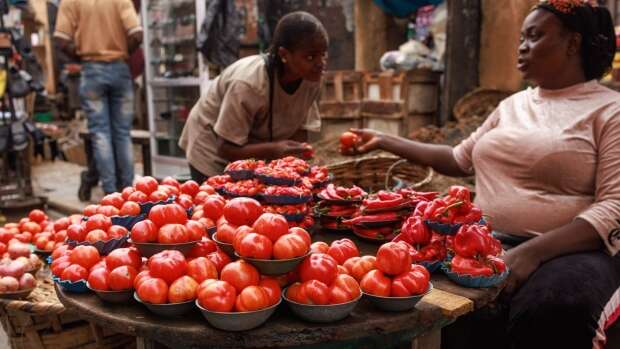Nigeria Set to Extend Rate Hikes as Inflation Hits 28-Year High
Nigeria’s annual inflation rate climbed to a more than 28-year high in November, raising expectations that its central bank will extend an unprecedented tightening cycle into next year.
Consumer prices rose more than expected to 34.6% from 33.9% a month earlier, according to data published on the website of the National Bureau of Statistics on Monday. The median estimate of five economists in a Bloomberg survey was 34.3%.
What Bloomberg Economics Says…
“After the higher-than-expected rise in Nigeria’s inflation, we now expect price gains to moderate from January — rather than December — at a slow pace. Rate hikes will persist until the Central Bank of Nigeria achieves its goal of restoring positive real rates – likely in the third quarter of 2025. Falling inflation will give scope for policy to become less restrictive in 4Q25,” says Yvonne Mhango, Africa economist.
Inflation has been kept elevated by recent floods in the north of the country that have led to higher yam and corn prices and rising gasoline costs. Food inflation quickened to 39.9% in November from 39.2%% a month earlier and core price growth, which excludes agricultural produce and energy, accelerated to 28.75% from 28.4%.
The central bank’s monetary policy committee has raised the key interest rate by 875 basis points this year to contain price pressures and boost the naira that’s shed 41% of its value against the dollar. The MPC expects inflation to start easing in 2025 because of these measures, Governor Olayemi Cardoso said last month.
It also foresees the deregulation of the petroleum industry and steps to improve security in Nigeria’s food-producing northeastern region easing price pressures.









